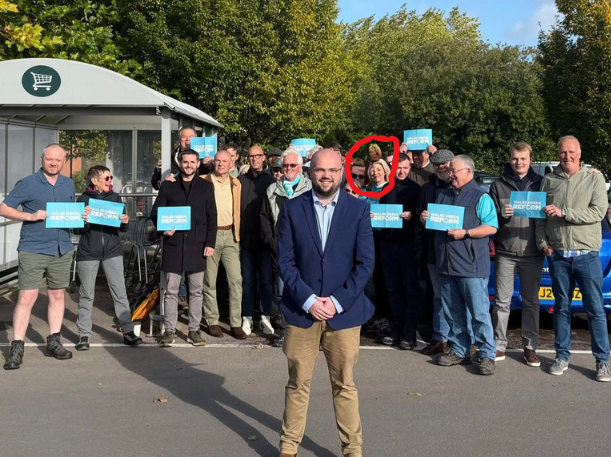ARTICLE AD BOX
Mujtaba Rahman is the head of Eurasia Group’s Europe practice. He tweets at @Mij_Europe.
All’s quiet on the northern front. Or so it seems.
Several months have gone by since U.S. President Donald Trump last boasted of his ambition to seize Greenland “one way or another.” But this silence is misleading and his obsession with the giant ice-bound territory hasn’t diminished.
Senior Danish officials fear that Trump is still determined to become the first U.S. president to make a significant expansion to American territory since Andrew Johnson bought Alaska in 1867. And that regardless of the recent deals over defense and trade, Greenland could yet become the Trump 2.0 era’s biggest car crash in transatlantic relations.
The Danes also fear that some of their European partners in the EU and NATO have failed to grasp how existential a threat to U.S. relations, and to global respect for sovereignty and international borders, Trump’s Greenland fixation could become.
French President Emmanuel Macron is an exception here, as he delighted both Denmark’s and Greenland’s leaders by reiterating that the autonomous territory is not “for sale or for taking” during his brief visit to Nuuk in June. But others have been reluctant to provoke the volatile American leader, particularly when talks on trade and a U.S. backstop for a European-Ukrainian security guarantee seem to be heading in a more constructive direction.
Instead, they prefer to treat Trump’s plans to annex Greenland as a distraction or joke — but no one in Copenhagen is laughing.
Denmark believes Trump’s obsession with Greenland is both irrational and genuine.
Irrational because there’s no immediate security threat to Greenland from Russia or China, and any such future threat could be handled by NATO. Moreover, the exploitation of Greenland’s minerals and rare earths is already open to U.S. investors but few have shown interest.
But senior Danish officials also believe Trump’s territorial ambitions are, indeed, real, even if they aren’t based on practical objectives. They’re all about the untidiness of the map.
Trump regards the huge, empty foreign landmass to his northeast as an affront to American greatness — a piece of real estate that both Manifest Destiny and the Monroe Doctrine dictate should belong to the Land of the Free.
The U.S. president takes the same map-driven view of Canada. However, there he suspects the annexation of some 40 million people might be impossible or, at the very least, a long-term project. Grabbing a large island, with the population of a medium-sized town (56,000 Greenlanders) and 80 percent covered in ice, should be simpler.
And what about sovereignty or self-determination? When Trump was asked this back in January, he replied: “I’m sure Denmark will come along.” He also made no mention of the Greenlanders, 89 percent of whom are Inuit and 85 percent of whom rejected an American future in a January poll.
 But senior Danish officials also believe Trump’s territorial ambitions are, indeed, real, even if they aren’t based on practical objectives. | Nils Meilvang/EPA
But senior Danish officials also believe Trump’s territorial ambitions are, indeed, real, even if they aren’t based on practical objectives. | Nils Meilvang/EPASo, Danish officials are convinced the Trump White House is planning something — a view substantiated by a Wall Street Journal report in May about U.S. intelligence agencies trying to identify “useful” Greenlanders sympathetic to Trump’s agenda, as well as news that Denmark summoned a top U.S. diplomat in August to discuss reports of three American citizens with alleged links to Trump conducting covert operations in Greenland. Their objective, the Danish public broadcaster DR reported, was to foment ill feeling against Copenhagen.
Hence, the Danish government doesn’t expect a military invasion — it expects an invasion of dollars. Either as an outright offer to pay a large sum to each Greenlander, or a campaign to buy influence and local politicians. And the fear in Copenhagen is that a slow-motion land grab won’t provoke a strong enough response in Brussels or among its EU partners.
To this end, Danish officials have been making their case in European capitals to varying degrees of success. They were delighted with Macron’s visit to Greenland, as the French president lectured Trump — without using his name — on the importance of international law and behavior between allies.
Their strategy now is to further raise the cost to Trump by gaining similar backing from Berlin and EU institutions for a commitment to Greenland’s security and a program of sensitive economic development.
Greenland voted and left the European Community 50 years ago, but Greenlanders retain Danish nationality — and, therefore, European passports. This potentially gives them the best of both worlds: a large degree of political autonomy, as well as access to European investment and protection.
 He also made no mention of the Greenlanders, 89 percent of whom are Inuit and 85 percent of whom rejected an American future in a January poll. | Mads Claus Rasmussen/EPA
He also made no mention of the Greenlanders, 89 percent of whom are Inuit and 85 percent of whom rejected an American future in a January poll. | Mads Claus Rasmussen/EPAA Trumpian takeover would mean the exact opposite: insensitive U.S. investment with little concern for indigenous culture. The treatment of the Inuit populations in Alaska is a warning for the Inuit population of Greenland.
So, while in the brief lull in Trump’s northern expansion strategy, Europeans would be right to take the concerns of their Danish allies seriously.
Somewhere down the line, a transatlantic — or Arctic — collision seems inevitable. Trump’s designs on Greenland challenge international law regarding territorial integrity and the inviolability of borders. And the Danes are right: If the U.S. president presses ahead in Greenland, others can and will follow elsewhere.
.png)
 9 hours ago
2
9 hours ago
2








 English (US)
English (US)